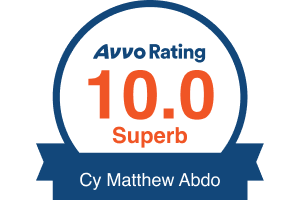DUI Drug Offenses
Schedule 1 Drugs, Marijuana or Prescribed Medications
Operating a vehicle while intoxicated, under the influence or impaired is not limited to cases involving alcohol. Operating a motor vehicle under any of these scenarios is a violation of the *DUI laws pursuant to the Michigan Motor Vehicle Code:
- With ANY presence of a Schedule 1 drug or cocaine.
- With ANY Presence of Marijuana.
- While impaired or under the influence of prescribed medications.
- While impaired or under the influence of a combination of alcohol, marijuana illegal drugs or prescribed medications.
*DUI is the common terminology used to refer to all offenses for driving under the influence or impaired.
DUI Representation: Macomb, Oakland, St. Clair & Wayne
CALL: Metro Detroit: 586-412-5555
Blood Tests for Drugs on the Rise
Blood tests are the primary method used to test for drugs and marijuana. Our DUI defense lawyers believe that the number of individuals charged with operating under the influence of drugs, marijuana and legally prescribed medications will continually rise based upon blood testing data as contained in the Michigan State Police Annual Drunk Audit. The statistics for 2008 and 2017 indicate an increase of approximately 20% in the number of blood tests administered in the following counties:
| Number of Blood Tests | 2008 | 2017 |
| Macomb | 340 | 482 |
| Oakland | 874 | 1,031 |
| Wayne | 837 | 1,002 |
| St. Clair | 88 | 110 |
OWPD: Operating with any Presence of a Schedule 1 Drug Proof of Impairment or Intoxication is NOT Required
The Michigan Controlled Substance Act classifies drugs in schedules. The most dangerous, addictive and unsafe drugs are labeled Schedule 1 Controlled Substances. Marijuana is classified as a Schedule 1 drug. In Michigan it is a crime (OWPD) to operate a vehicle with ANY PRESENCE of a Schedule 1 drug or cocaine, regardless of actual impairment. Heroin, LSD and ecstasy are all examples of Schedule 1 drugs. The penalties upon conviction for OWPD are the same as Operating While Intoxicated. While OWI offenses involving alcohol require a finding that the blood alcohol content is .08 or higher, there is no threshold requirement to be charged and convicted with Operating with the Presence of Schedule 1 Drugs.
ABDO LAW relevant DUI links for your convenience:
Prescribed Medications: Prosecutor Must Prove Impairment
There are side effects and warnings provided with many medications that are prescribed for pain, sleep and psychological disorders. For example, the following is a warning/precaution is provided with a prescription for Adderall:
This drug may make you dizzy. Alcohol or marijuana can make you more dizzy. Do not drive, use machinery, or do anything that needs alertness until you can do it safely. Limit alcoholic beverages. Talk to your doctor if you are using marijuana.
The law pertaining to driving under the influence of prescription medications is not the same as the law which makes it a “per se” crime to operate a vehicle with the presence of ANY Schedule 1 substance (OWPD). The offense OWPD does not require proof of impairment or intoxication, only the presence ANY of a Schedule 1 controlled substance as determined by a blood or urine test. Conversely, driving under the influence of prescribed medications is not automatically a crime unless the prosecutor can prove that the medications caused impairment or intoxication.
Impairment Defined: A person’s ability to operate a motor vehicle was so weakened or reduced by the use of intoxicating liquor or drugs and that the person drove with less ability than would an ordinary, careful and prudent driver. Such weakening or reduction of ability to drive must be visible to an ordinary, observant person. The degree of a person’s impairment may be established by the testimony of someone who saw the person or a police officer.
Operating Under the Influence or Presence of Marijuana
The DUI laws in Michigan and the present Michigan marijuana laws are conflicted. In Michigan, it is a crime to operate a vehicle with the presence of any Schedule 1 drug. Marijuana is classified as a Schedule 1 drug. Presently in Michigan, there are two different legal scenarios that apply regarding operation of a vehicle after consuming marijuana: those with medical marijuana cards and those without medical marijuana cards.
- No Medical Marijuana Card: In Michigan it is a violation of the law to operate a vehicle with any presence of marijuana without a medical marijuana card. Impairment or intoxication is irrelevant.
- With Medical Marijuana Card: You may operate a motor vehicle if you have a valid medical marijuana card. However, you cannot operate a vehicle if the use of marijuana causes impairment. Having a medical marijuana card is not a defense to DUI if a blood test is positive for active THC is and impairment is proven.
Michigan uses legal limits or cutoffs for those charged with operating while intoxicated by alcohol. The legal limit, or cutoff, for alcohol is .08. Presently, Michigan does not have any cutoff or threshold for person to be considered under the influence of marijuana.
Even as Michigan seems to moving in the direction of adopting legislation towards legalizing marijuana for recreational use, it will continue to be classified as a drug. At some point, Michigan will need to establish standards, or cutoff levels, considered to be within legal limits for operating a vehicle after consuming marijuana. Moving in this direction, Michigan is likely to look at laws of other states that have legalized marijuana, such as Colorado, where the law specifies:
Drivers with five (5) nanograms of active tetrahydrocannabinol (THC) in their blood can be prosecuted for driving under the influence (DUI). However, no matter the level of THC, law enforcement officers base arrests on observed impairment.
Test Samples Submitted to the Michigan State Police for Analysis
There is no equivalent measure to immediately test for drugs or marijuana that compares to the breathalyzer which is used to test for alcohol. If an officer suspects that a person has used drugs or marijuana, a chemical test (blood or urine) is administered. If an individual does not consent to testing, a court order may be obtained. The test is then submitted to the Michigan State Police for forensic analysis. Because hundreds of tests are submitted every week by police agencies throughout the State of Michigan, it can take several months before the results are returned and a case is entered in the court system.
Metro Detroit’s Best DUI Defense: Macomb, Oakland, Wayne & St. Clair
Police are required to follow protocols in testing individuals for drugs or alcohol. Police practices are subject to challenge in the courtroom if they do not follow stringent procedures in collecting evidence. In addition, if the chemical test results are disputed, an expert in drug toxicity can be employed to testify at trial regarding technicalities that are disputed. Driving on prescription medications is not a crime without proof of impairment. A police officer’s observations that someone is intoxicated or impaired is not the final word. There may be innocent reasons that a person exhibited signs of being under the influence that are unrelated to the use of medications.
EMAIL or CALL Abdo Law for a FREE CONSULTATION. Phone messages are forwarded to our attorneys. We offer same day, evening, weekend appointments and the ability to retain us over the internet. Payment plans and all credit cards accepted.
CALL: Metro Detroit: 586-412-5555




















